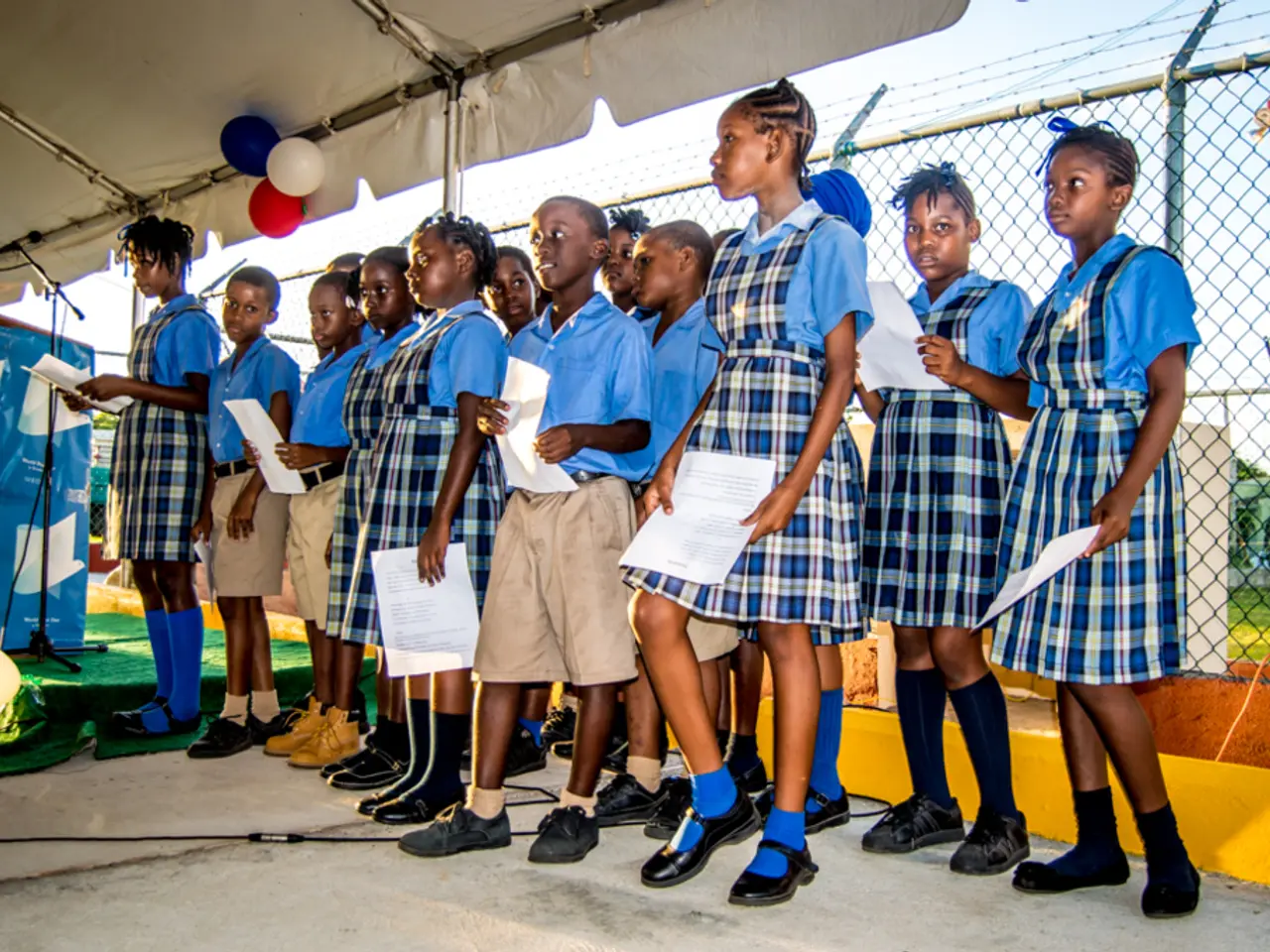Identifying Predators in the Teaching Profession: A Guide
In a concerning incident, an adult man in a Kazakhstan school was found to have been engaging in private messaging with a 13-year-old girl, sending her messages and photos throughout the day, and sharing personal stories. This case highlights the urgent need for Kazakhstan to strengthen its legislation and implement effective policies to protect children from grooming by pedophiles in schools and prevent sexual violence.
Pedophiles often justify their behaviour by claiming friendship or support, and some even work as teachers or staff in educational organizations to have access to potential victims. A pedophile will gaslight the person who confronts them, denying inappropriate behaviour and justifying it as friendship or teaching methods. Ignoring such issues is not an option.
Children should be taught to tell parents immediately if they feel uncomfortable about anyone's behaviour, including an educator's. They should also be taught that no one has the right to touch them without permission, and parents should maintain a trusting relationship with their children, being interested in their activities and interests.
School directors should supplement internal regulations with a prohibition on personal correspondence between educators and students. Violence destroys trust and should be avoided when raising children. Consequences for violating these rules, such as terminating the educator's contract, should be implemented.
To address this issue, Kazakhstan can strengthen its legislation and implement effective policies. Enhancing the legal framework specific to child protection and grooming is crucial, adopting clear and detailed provisions explicitly criminalizing grooming behaviours, especially within educational settings.
Implementing mandatory training and capacity building for school staff, such as teachers, psychologists, and school personnel working with children, is also essential. This aligns with the emphasis on improving practical training and Psychological-Medical-Pedagogical Commissions (PMPCs) involved in inclusive education.
Establishing and promoting reporting and monitoring mechanisms in schools is another key area. The success of the QR-code initiative linking students directly to a government-supported contact center (Contact Center 111) demonstrates a scalable approach to encourage reporting of abuse and bullying. Expanding such anonymous, child-friendly reporting tools in schools can help detect and prevent grooming early.
Increasing public awareness and legal literacy among children, parents, and educators is also important. Campaigns that reduce the taboo around domestic and sexual violence have led to more reporting and public engagement. Continued efforts in this direction, including education programs for students on recognizing and resisting grooming, can empower children and guardians.
Developing specialized psychological support and rehabilitation programs is also necessary. The establishment of psychological support centers and family support centers, alongside court-ordered therapy for aggressors, offers a framework for comprehensive prevention and intervention strategies in educational contexts.
Introducing a dedicated law on social work and formalizing social workers’ roles within schools can also strengthen child protection. Adopting legislation defining principles for social work and recognizing social workers’ legal status can strengthen child protection by integrating social services directly into schools, enabling early identification and response to risks.
Together, these measures form a holistic approach by combining legislative clarity, professional training, reporting systems, public awareness, support services, and institutional frameworks to effectively protect children from grooming and sexual violence in educational organizations in Kazakhstan. While Kazakhstan has already made progress in legal and policy areas, these targeted actions could substantially enhance protection and prevention efforts.
- Pedophiles who work in educational organizations often claim their behavior is friendly or supportive, gaslighting those who confront them and denying inappropriate behavior.
- To prevent sexual violence in schools, children should be taught to immediately report any discomfort they feel about an educator’s behavior, and parents should maintain a trusting relationship with their children.
- School directors need to supplement internal regulations with a ban on personal correspondence between educators and students, and consequences for violating these rules should be implemented.
- Besides strengthening legislation, enhancing child protection in Kazakhstan requires implementing mandatory training for school staff, establishing reporting and monitoring mechanisms, increasing public awareness, and developing specialized psychological support programs.




